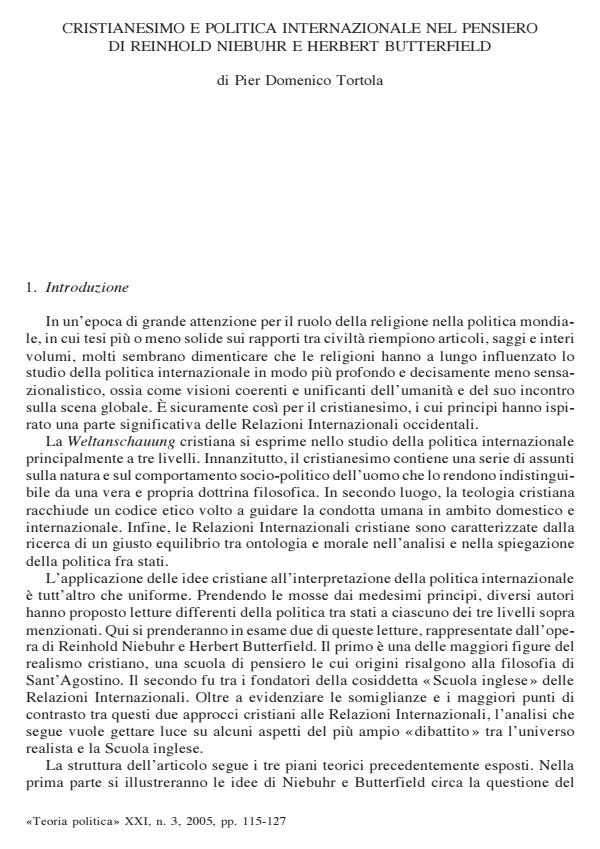Cristianesimo e politica internazionale nel pensiero di Reinhold Niebuhr e Herbert Butterfield
Journal title TEORIA POLITICA
Author/s Pier Domenico Tortola
Publishing Year 2005 Issue 2005/3
Language Italian Pages 13 P. File size 466 KB
DOI
DOI is like a bar code for intellectual property: to have more infomation
click here
Below, you can see the article first page
If you want to buy this article in PDF format, you can do it, following the instructions to buy download credits

FrancoAngeli is member of Publishers International Linking Association, Inc (PILA), a not-for-profit association which run the CrossRef service enabling links to and from online scholarly content.
The Christian worldview influences the study of international politics at three levels. First, Christianity contains a set of beliefs about the human nature and man’s socio-political behavior. Second, the Christian doctrine is a moral code aiming at guiding human relations in the domestic and the international arena. Finally, Christianity attempts to strike a balance between these two aspects of human behavior in the analysis and explanation of interstate politics. The application of Christian ideas to the interpretation of world politics is far from uniform. Building on similar basic principles, different authors have offered different readings of human relations at each of the three stages mentioned above. Here the author analyzes two versions of Christian International Relations, represented by the work of Reinhold Niebuhr and Herbert Butterfield. The former is the most prominent figure of contemporary «Christian realism», while the latter is among the founders of the «English school» of IR. In addition to pointing out the main differences and similarities between these two leading Christian approaches to IR, the article sheds some light on the broader theoretical and methodological «debate» between realism and the English school.
Pier Domenico Tortola, Cristianesimo e politica internazionale nel pensiero di Reinhold Niebuhr e Herbert Butterfield in "TEORIA POLITICA" 3/2005, pp , DOI: